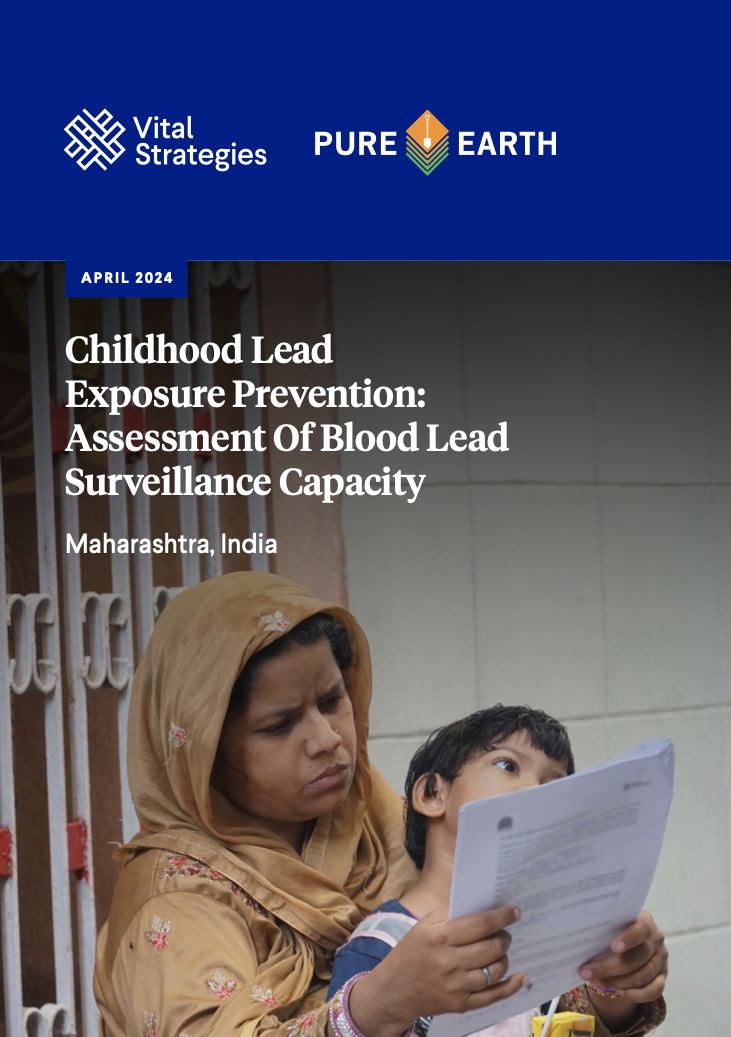In India, a recent National Institution for Transforming India (NITI) Aayog—Council of Scientific and Industrial Research (CSIR) report has highlighted the importance of establishing blood lead surveillance that can generate high-quality local data to help understand lead exposure and health burden among Indian children. This may be implemented effectively at the state level, starting in states including Maharashtra, where there is demonstrated government commitment to addressing environmental health issues. Statewide childhood blood lead surveillance typically involves monitoring blood lead levels (BLLs) among children and collecting other information that may indicate risks and sources of lead exposure.
As an essential step toward establishing such a system at the state level in Maharashtra, we conducted a capacity assessment to evaluate existing laboratory capacity and health system structure and provide recommendations for capacity strengthening and surveillance options best suited for Maharashtra. This capacity assessment report evaluated the policy landscape, public health infrastructure laboratory capacity to initiate and support a statewide childhood lead surveillance system, which will be fulfilled in close collaboration with the Public Health Department (PHD), Government of Maharashtra.
Recent Abstracts
Effects of Heat on Early Childhood Development
Blood Lead Surveillance of Children and Pregnant Women in Tamil Nadu, India
Sportswashing through Media: Coca-Cola’s Olympic Play – A Research Report
What’s in Our Food?
Mais Dados Mais Saúde
More Data, Better Health – Primary Health Care
Mais Dados Mais Saúde: Experiência De Discriminação Cotidiana Pela População Brasileira
More Data, Better Health – Experience of everyday Discrimination by the Brazilian population
Monitoramento de Estratégias pelo Fim da Violência contra Crianças e Adolescentes
Harm Reduction: The Neglected Pillar of US Drug Policy
